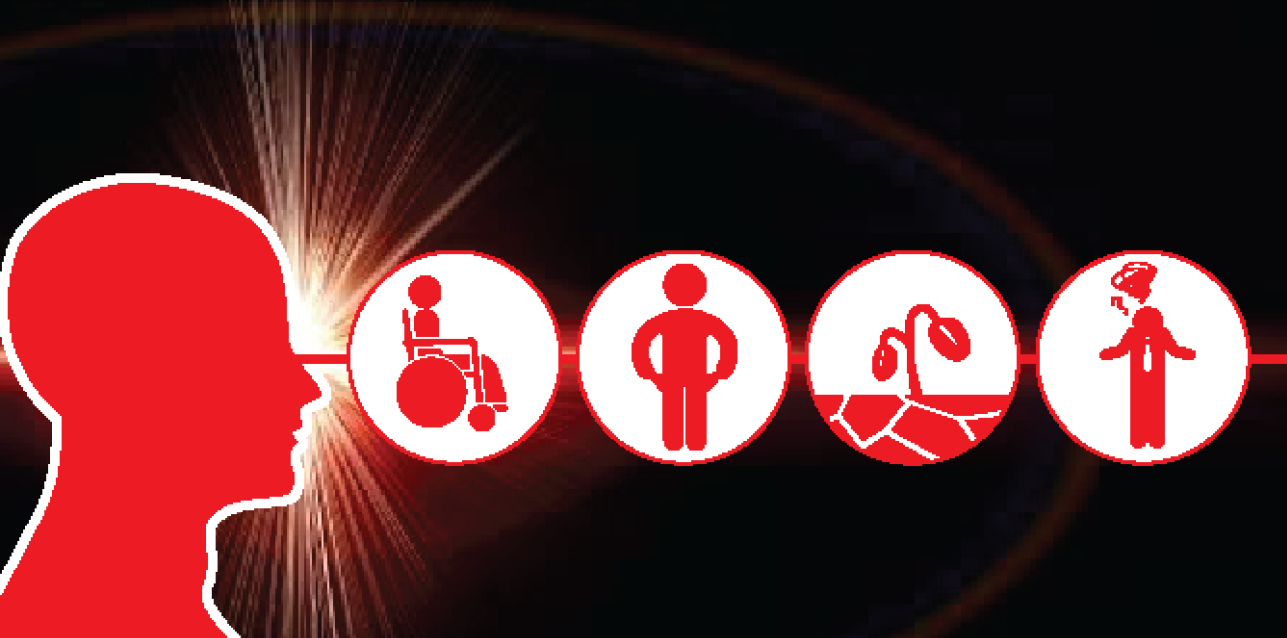As human beings, we are bound to face challenges, natural as well as man-made, in the course of living on this earth. It is our ability to confront and deal with or manage all life circumstances that make life worth living. In the case of natural challenges which could be physical, biological, environmental, ecological or geographical, individuals most often devise means of living with such when they occur. For instance, there is a limit to what anyone could do to change his genetic structure, replace parts of his body, or alter the climate of the region or community in which he/she lives because they are natural trends or phenomena.
For challenges that arise from human interactions and activities including political misfortunes, socio-economic hardships, educational difficulties, career failures, etc., the tendency for an individual to find feasible solutions or peacefully cope with them is high. Like natural occurrences, individuals at other times are ‘compelled’ to learn to live with some intractable circumstances that may have been occasioned by human factors. Depending on the nature of a particular problem, circumstances experienced by individuals could be described as ‘evil’. Others sometimes see certain challenges as a part of the realities of life. In any case and in all situations, Islam teaches Muslims to consider every life challenge as a trial from the Creator of heavens, the earth and all that is in them.
While reacting on Tuesday, December 17, 2019 to questions asked by the Nigerian Television Authority reporter at the State House in Abuja about how he felt on his 77th birthday, President Muhammadu Buhari said, “I feel well at 77. A lot of others at 77 are on crutches and I am walking on my two feet.” Responding to another question, Buhari said, “I think I have come to accept the realities of leadership in Nigeria; you can only try. It is a terrific country, no matter what you do, there are people on a daily basis that look for your faults and go to the press. So, you have to learn to live with that.”
Learning to live with anything that one can neither prevent, change nor curb is a wise counsel. This guidance epitomizes the lessons taught by one of the sayings of the Prophet Muhammad (SAW) narrated in the 34th hadith of An-Nawawi’s collection of 40 traditions. In the hadith, the Prophet (SAW) explains three basic approaches to correcting a wrong, effecting a change or managing an unfavourable circumstance. In this hadith, Imam Muslim relates on the authority of Abu Saeed Al-Khudriy (RA) who said he heard the Prophet (SAW) say, “Whoever among you sees an evil, let him change it with his hand (by taking action); if he cannot, then with his tongue (by speaking out); and if he cannot, then with his heart (by at least hating it and believing that it is wrong), and that is the weakest of faith.”
Abu Saeed al-Khudri was a young man when he embraced Islam. He was rejected on account of his age when he volunteered for the Battle of Uhud at the age of thirteen. He became one of the most knowledgeable companions of the Prophet (SAW) who had a total of 1,170 hadiths narrated on his authority.
The Arabic word ‘munkar’ in the text of the hadith, which is translated as ‘evil’ technically refers to anything disapproved of by Allah (SWT). This means that anything that is objectionable from the point of view of Islam can be categorized as ‘munkar’. In a broader linguistic sense, it could mean anything or action that is detestable, reprehensible, abominable, or forbidden. In this wise, therefore, challenges and circumstances that individuals find unpleasant may be categorized as ‘munkar’. This explains why in Islamic jurisprudence, an act may be considered ‘munkar’ even though the person performing it may not be seen to be sinful. Based on this hadith, the capacity to change a wrong is of two types. The physical and the non-physical. While changing a ‘munkar’ with the hand or tongue belong to the physical, effecting a change with the heart is largely non-physical.
By this hadith narrated by Al-Kudriy, any act that seeks to demonstrate ‘the weakest of faith’ as a means to living a happy life in spite of all the ups and downs of modern life would be seen to be virtuous rather than a mark of human weakness. It isn’t a weakness but a virtue when a man destined by Allah (SWT) to live and die in poverty accepts his fate without necessarily engaging in fraudulent and criminal activities for the sake of getting rich at all costs. It would be defined as weakest of weaknesses and not weakest of faith if an individual resorts to suicide when confronted with failure in school or university examinations, loss of a job, breakdown of a marriage relationship, the collapse of a business empire, or defeat in elections or sports competitions.
To despise a ‘munkar’ in the heart should not be interpreted as synonymous with docility. Refusing to identify with those who have sympathy for a particular form of ‘munkar’ would be one way of expressing dislike in one’s heart for evil or wrong or something odious. This comes under changing a ‘munkar’ with one’s heart. Ignoring a ‘munkar’ is another way of changing an undesirable situation with the heart. Abu Yusuf reported that Umar bn al-Khattab (May Allah be pleased with him) said, “Know that Allah has servants who cause some falsehood to die out by ignoring it and they give life to the truth by mentioning it.” Thus, ignoring a matter or event by remaining indifferent to it, is one way of changing some unwanted situations ‘with the heart’.
Since life is a pathway that isn’t without thorns, almost every individual including the rich and the poor, the leader and the led, the old and the young, as a man or as a woman, at one time or the other has something to worry about; something that challenges one’s peace of mind. Nonetheless, we must as believers accept that suicide, crime and violence are not and should not be considered as a viable option or solution to any challenges, difficulties or setbacks. Let us learn to accept that every situation is a test from Allah (SWT). May Allah (SWT) guide us to live peacefully with problems that appear intractable in nature, amin.




